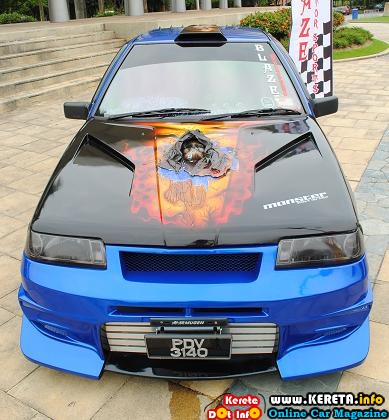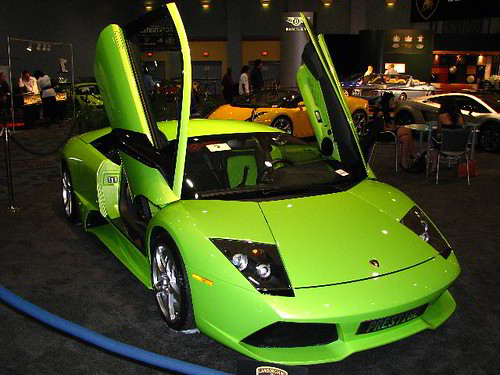|
|
|---|
Sunday, July 5, 2009
Lithium and Electric cars: Next Big Thing after Internet in action. TNR.v, SQM, ROC, DAI, NSANY, F, TM, BYD, TTM, GOOG, AAPL, RIMM, HUI, XAU, FXI
Posted by andre at 6:21 AM John Doerr knows thing or two about Internet: we are talking about our Next Big Thing - Electric cars for a while here. As usual there will be Infospaces, AOLs and Googles in this Bull market - we stick to the basics at the beginning: Lithium supply chain, who has the stomach to be into the game early?
John Doerr knows thing or two about Internet: we are talking about our Next Big Thing - Electric cars for a while here. As usual there will be Infospaces, AOLs and Googles in this Bull market - we stick to the basics at the beginning: Lithium supply chain, who has the stomach to be into the game early? 
"Fisker Tries to Distance Company From Tesla and Volt
The electric car marketplace is very young and yet to truly emerge. I would liken it to the Internet in 1992.
At this point there are a few players that are trying to distinguish themselves and aim to claim certain market segments.
One such player is Henrik Fisker, the founder of California-based Fisker Automotive. His company has designed and built the rather stylish Fisker Karma which is set to debut in Spring 2010. The car, like the Volt, is also an extended range electric vehicle (EREV), with 50 miles electric driving range and a gasoline range extender for longer distances. It is a 4-door sports car that will retail at $87,500. It is also powerful, using two 201 hp electric motors and going from 0 to 60 in 5.8 seconds.
Though Tesla is also based in California and sells a stylish electric sportscars, Fisker doesn’t want people to confuse the two companies. “The full-electric car [like the Tesla Roadster] is a niche market. Plug-in hybrids have a much bigger market,” he says.
Fisker expects to be able to sell 15,000 Karmas annually and has contracted a plant in Finland capable of producing 20,000 per year. But even at low volumes Fisker thinks he will be successful. “We have a new business model,” he says. “At 5,000 sales, we can make money.”
Obviously the market for $87,000 cars isn’t limitless. Fisker says he also has a plan to build a “lower in price, a mass market vehicle with high volume using common components with the Karma.” And with such a car in production, “there’s no reason we can’t eventually produce hundreds of thousands of cars a year,” he says.
Since the Fisker is using the same EREV design strategy as the Volt, and will offer a low priced variant in the future, you would think Fisker sees the Volt as competition. Not so he says, why? “Its a Chevy” says Fisker.
Somewhat ironic in his put-down of the American iconic brand is the fact that the Karma’s gas engine will be sourced from, that’s right, General Motors. For range extension, the car uses a turbocharged 2.0-liter Ecotec® direct injection (D1) gasoline engine. So the Karma may actually be partly a Chevy on the inside after all.
Source (HybridCars)"
At this point there are a few players that are trying to distinguish themselves and aim to claim certain market segments.
One such player is Henrik Fisker, the founder of California-based Fisker Automotive. His company has designed and built the rather stylish Fisker Karma which is set to debut in Spring 2010. The car, like the Volt, is also an extended range electric vehicle (EREV), with 50 miles electric driving range and a gasoline range extender for longer distances. It is a 4-door sports car that will retail at $87,500. It is also powerful, using two 201 hp electric motors and going from 0 to 60 in 5.8 seconds.
Though Tesla is also based in California and sells a stylish electric sportscars, Fisker doesn’t want people to confuse the two companies. “The full-electric car [like the Tesla Roadster] is a niche market. Plug-in hybrids have a much bigger market,” he says.
Fisker expects to be able to sell 15,000 Karmas annually and has contracted a plant in Finland capable of producing 20,000 per year. But even at low volumes Fisker thinks he will be successful. “We have a new business model,” he says. “At 5,000 sales, we can make money.”
Obviously the market for $87,000 cars isn’t limitless. Fisker says he also has a plan to build a “lower in price, a mass market vehicle with high volume using common components with the Karma.” And with such a car in production, “there’s no reason we can’t eventually produce hundreds of thousands of cars a year,” he says.
Since the Fisker is using the same EREV design strategy as the Volt, and will offer a low priced variant in the future, you would think Fisker sees the Volt as competition. Not so he says, why? “Its a Chevy” says Fisker.
Somewhat ironic in his put-down of the American iconic brand is the fact that the Karma’s gas engine will be sourced from, that’s right, General Motors. For range extension, the car uses a turbocharged 2.0-liter Ecotec® direct injection (D1) gasoline engine. So the Karma may actually be partly a Chevy on the inside after all.
Source (HybridCars)"
Subscribe to:
Post Comments (Atom)















0 comments:
Post a Comment